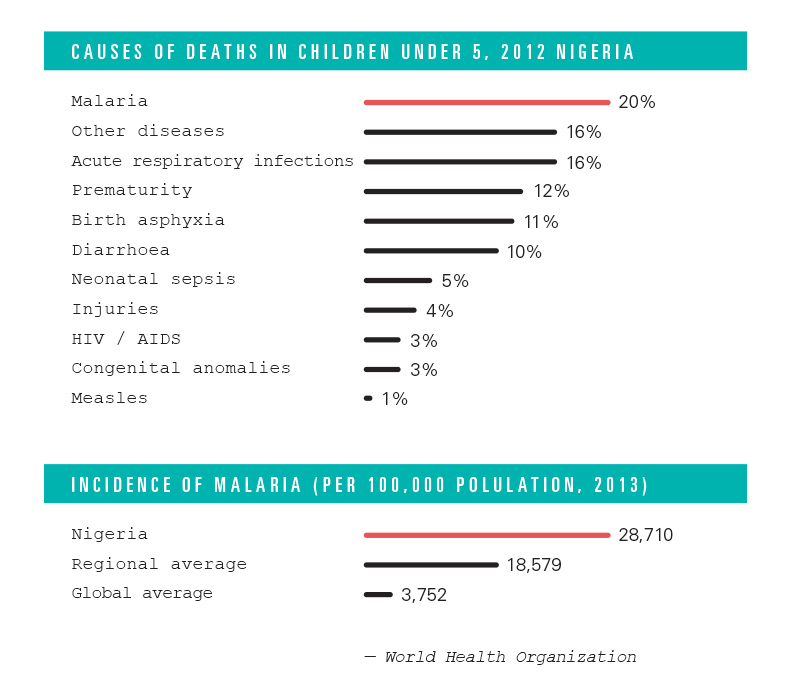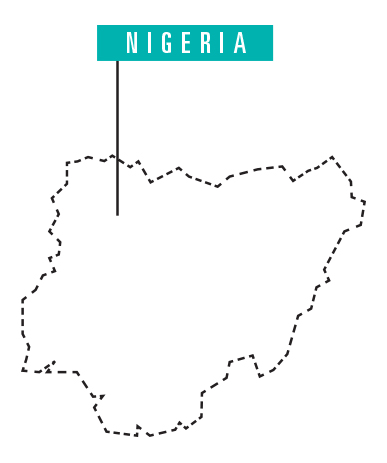SAVING LIVES THROUGH COMPUTER SCIENCE
Spring 2015 issue
While the Ebola crisis wanes, diseases North Americans vaccinate against in travel clinics will continue to plague developing nations - a Mount Royal University professor is developing a new application to help diagnose and fight back against these tropical diseases.
Faith-Michael Uzoka's heart is divided across two continents.
Uzoka currently calls Calgary home, where he holds a position as full professor at Mount Royal. While he was born in Nigeria, the Computer Science and Information Systems professor moved to Canada in 2004 to complete his postdoctoral fellowship in Computer Informatics at the University of Calgary.
Uzoka, PhD, has taught at various universities throughout the globe since the early 1990s.
Since summer 2014, however, Uzoka has been on an important sabbatical in Africa, where he's proving that computer science is about much more than programming video games or finding solutions to eradicate computer viruses that threaten software systems - Uzoka is using computer science to help combat diseases that threaten humanity.
Computer science can, in fact, help save lives.
In Nigeria, Uzoka is helping doctors make faster, more accurate diagnoses of tropical confusable diseases through a data system that aids medical professionals in accurately diagnosing and tracking these fast spreading, often deadly, illnesses.
"Tropical diseases have become global in nature. These diseases travel with the patient," says Uzoka. "I see my work as benefiting both my home country here in Canada and the continent of my origin."
Tropical confusable diseases, in headlines and travel warnings, have made more waves recently than ever before. Long after the Ebola crisis is over, the diseases Calgarians vaccinate against in travel clinics will continue to plague developing nations. Yellow fever, malaria, typhoid and other hot-weather afflictions will still exist and physicians in countries such as Nigeria will continue to treat patients on the frontline.
Using the fuzzy cognitive map, Uzoka and local research assistants are currently collecting data from 235 doctors and 4,000 patients to create a system that more accurately diagnoses malaria at the first stage of consultation than a physician can perform without the technology.
Fuzzy logic, data that is neither true nor false but variable, is assigned a value to provide the data for a score or, in this case, a diagnosis.
"Tropical diseases have become global in nature. These diseases travel with the patient"
"It's all about people. It's all about how people think. By thinking, you're making comparisons," explains Uzoka.
Human beings can't necessarily describe their symptoms with accuracy and precision. The system finds patterns in inputs of symptoms and patient risk factors, creating a crisp picture from this blurry input.
"Our initial model came up with a result that is superior to the initial hypothesis of the physicians," says Uzoka. "In this instance, the patient isn't just getting care, they're getting care sooner."
When patients are treated sooner, they typically become well sooner. The immediate therapy improves the efficiency and effectiveness of the physician and reduces the burden on the health-care system.
Once the diagnostic system is fully created and tested, an application on a handheld tablet will assist frontline doctors to make the correct diagnosis without further tests. Drug treatments can be prescribed and traditional diagnostic tests can be eliminated, reducing steps in a system that is already strapped.
Uzoka's research collaborator in Nigeria, Gbenga Fashoto, says the application will have lasting impacts for the nearly 175 million people living in the country and anticipates shorter wait times at clinics and hospitals in the long term.
"It will also enhance access to medical care, since it is anticipated that the efficiency of the physician in patient interrogation and disease diagnosis will be improved by the use of the decision support system," says Fashoto.
It's this applied computer research that has real-world impact, says Ricardo Hoar, chair of Computer Science and Information Systems at Mount Royal.
Hoar reasons that computer science professionals have a strong ability to help others in many areas including medical informatics.

"Software development gives you the opportunity to have an impact in hundreds, perhaps thousands, of locations without ever setting foot there," he says.
Computer science can really help people and Uzoka's work leads by example both in the field and in the classroom.
"We're taking computer science ideas, applying them to a particular problem area and we're getting real results that can be brought into the undergraduate classroom and add value and a richer experience to our students," says Hoar.
Speaking about his work as a researcher and professor, Uzoka says, "Mount Royal University gives you the ability to be whatever you want to be" and he thinks that Africa "has huge potential yet to be tapped."
In addition to engaging undergraduate computer science students in data analysis, Uzoka works with African universities to develop the continents research capacity. Awarded the Carnegie African Diaspora Fellowship in fall of 2014, Uzoka is on the path to creating lasting connections to further develop academics at home and abroad.



